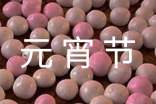冬至节气的英语作文
As early as 2,500 years ago, about the Spring and Autumn Period (770-476 BC), China had determined the point of Winter Solstice by observing movements of the sun with a sundial. It is the earliest of the 24 seasonal division points. The time will be each December 22 or 23 according to the Gregorian calendar.
The Northern hemisphere on this day experiences the shortest daytime and longest nighttime. After the Winter Solstice, days will become longer and longer. As ancient Chinese thought, the yang, or muscular, positive things will become stronger and stronger after this day, so it should be celebrated.
The Winter Solstice became a festival during the Han Dynasty (206 BC-220 AD) and thrived in the Tang and Song dynasties (618-1279). The Han people regarded Winter Solstice as a "Winter Festival", so officials would organize celebrating activities. On this day, both officials and common people would have a rest. The army was stationed in, frontier fortresses closed and business and traveling stopped. Relatives and friends presented to each other delicious food. In the Tang and Song dynasties, the Winter Solstice was a day to offer scarifies to Heaven and ancestors. Emperors would go to suburbs to worship the Heaven; while common people offered sacrifices to their deceased parents or other relatives. The Qing Dynasty (1644-1911) even had the record that "Winter Solstice is as formal as the Spring Festival," showing the great importance attached to this day.
In some parts of Northern China, people eat dumpling soup on this day; while residents of some other places eat dumplings, saying doing so will keep them from frost in the upcoming winter. But in parts of South China, the whole family will get together to have a meal made of red-bean and glutinous rice to drive away ghosts and other evil things. In other places, people also eat tangyuan, a kind of stuffed small dumpling ball made of glutinous rice flour. The Winter Solstice rice dumplings could be used as sacrifices to ancestors, or gifts for friends and relatives. The Taiwan people even keep the custom of offering nine-layer cakes to their ancestors. They make cakes in the shape of chicken, duck, tortoise, pig, cow or sheep with glutinous rice flour and steam them on different layers of a pot. These animals all signify auspiciousness in Chinese tradition. People of the same surname or family clan gather at their ancestral temples to worship their ancestors in age order. After the sacrificial ceremony, there is always a grand banquet.
早在2500年前,关于春秋时期(公元前770—476年),中国已经确定冬至的时候通过观察运动的太阳日晷。它是最早的季节性部门24点。时间在每年公历12月22日或者23日之间。
北半球在这一天白天最短,黑夜最长的经历。在冬至后,天会变得越来越长。作为中国古代思想、杨、肌肉发达,积极的事情这一天后就会越来越强,所以它应该庆祝。
冬至成为节日在汉代(公元前206年-公元220年),在唐宋时期(618 - 1279)。汉人把冬至作为“冬季节”,所以官员会组织庆祝活动。在这一天,官员和老百姓都将休息。军队驻扎在边境要塞关闭和商业和旅游停止。亲戚和朋友互相介绍美味的食物。在唐宋时期,冬至是一天提供严厉批评天堂和祖先。皇帝会去郊区敬拜天上;而老百姓死去的父母或其他亲属献祭。清朝(1644 - 1911)甚至有记录,“冬至是正式的春节,“显示了高度重视。
在中国北方的`一些地方,人们在这一天吃饺子汤,而其他地方的居民吃饺子,说这样做会让他们从弗罗斯特在即将到来的冬天。但在中国南部地区,全家人会在一起吃饭的红豆糯米赶走鬼怪和其他邪恶的东西。在其他地方,人们还吃汤圆,一种填充小饺子糯米粉制成的球。冬至粽子可以作为祭祀祖先,或给朋友和亲戚的礼物。甚至台湾人民保持提供nine-layer蛋糕他们祖先的习俗。他们做蛋糕形状的鸡、鸭、龟、猪、牛或羊与糯米粉和蒸汽锅的不同层。这些动物象征吉祥喜庆的传统。人相同的姓或家庭家族聚集在他们的祖先的庙宇崇拜祖先时代顺序。祭祀仪式后,总有一个盛大的宴会。
版权声明
本站文章收集于互联网,仅代表原作者观点,不代表本站立场,文章仅供学习观摩,请勿用于任何商业用途。
如有侵权请联系邮箱tuxing@rediffmail.com,我们将及时处理。本文地址:https://www.wuliandi.com/zuowen/yyzw/rdyyzw/jieriyy/202203/2822649.html

